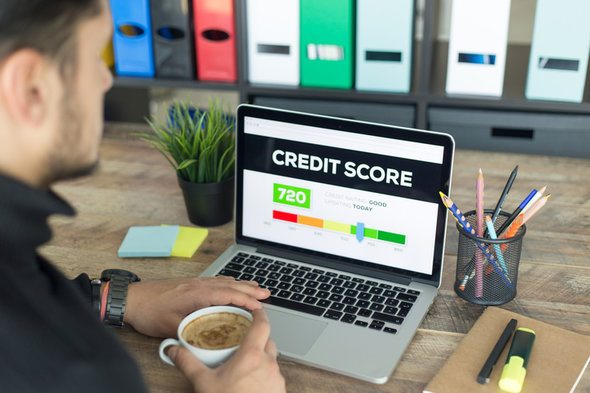If you are thinking about buying a home, one of the first steps you should take is to find out your credit score. Your credit score is one of the primary metrics used to determine whether you will qualify for a mortgage, as well as your loan pricing. There are three credit bureaus—Equifax, Experian and Transunion. When you apply for a mortgage, the lender will pull a merged report of all three bureaus. The middle credit score of the three is what they use to qualify you.
Find out now: How much house can I afford?
Tiered pricing impacts qualification
Lenders adjust their rate and/or fees based on credit score. Any middle score above 740 will qualify you for the best conventional mortgages available. With each 20 point drop below that (720, 700, 680, 660, 640) the lender has “add-ons” to either the rate or loan fee. Most lenders in today’s market will not lend at all to borrowers with a credit score under 620.
The additional cost, once translated to the monthly payment, can seriously alter the amount you qualify for. If you thought you were getting a rate of 4.25, but now that your credit has been pulled the lender is offering you 4.625, you may not even qualify for the higher payment. If you were planning to put less than 20 percent down, your mortgage insurance cost will also go up because of a low credit score. You might have to put more money down on your purchase, or look for a cheaper home.
Related Article: How to Buy a House with Bad Credit
Plan ahead and avoid surprises

Rather than waiting till loan application and having a credit score surprise, do some legwork ahead of time.
Once you have your credit report, look at the score and what might be affecting it. Are any creditors incorrectly reporting you late? Are there any judgments or collection accounts listed that you did not know about? Medical collections are often a surprise because medical offices seldom actively pursue collection. But they still put a negative hit on your credit report.
Take steps to improve your score

If your score is less than 740, see if there are ways to improve it before seeking a mortgage. Try paying down your credit card accounts with balances close to the credit limit. Paying these balances down to under 50 percent of the limit will already improve your score. Pay off any small collection accounts should you have any. If there are inaccuracies, you might want to talk to a credit repair professional to work on your behalf to correct them.
Related Article: 3 Ways to Save Money with a 750 Credit Score
Ideally, once your mortgage loan is in process, you have gotten your credit score as high as possible. The loan process can take from 30 to 90 days, so be careful not to do anything to worsen your credit rating during this time. Do not run up your credit cards or take out any new debts. Most importantly, do not let yourself fall behind on any payments. Most lenders will pull a new credit report just before loan closing. If your score has gone down, the lender has no obligation to honor the original terms, even if your rate is locked in.
The Takeaway
As with all aspects of the mortgage process, preparing yourself in advance and being knowledgeable about what lenders look for will make for a smoother transaction, and help you get the best possible loan.
Photo Credit: ©iStock.com/bradleyhebdon, ©iStock.com/SIphotography, ©iStock.com/cynthzi
